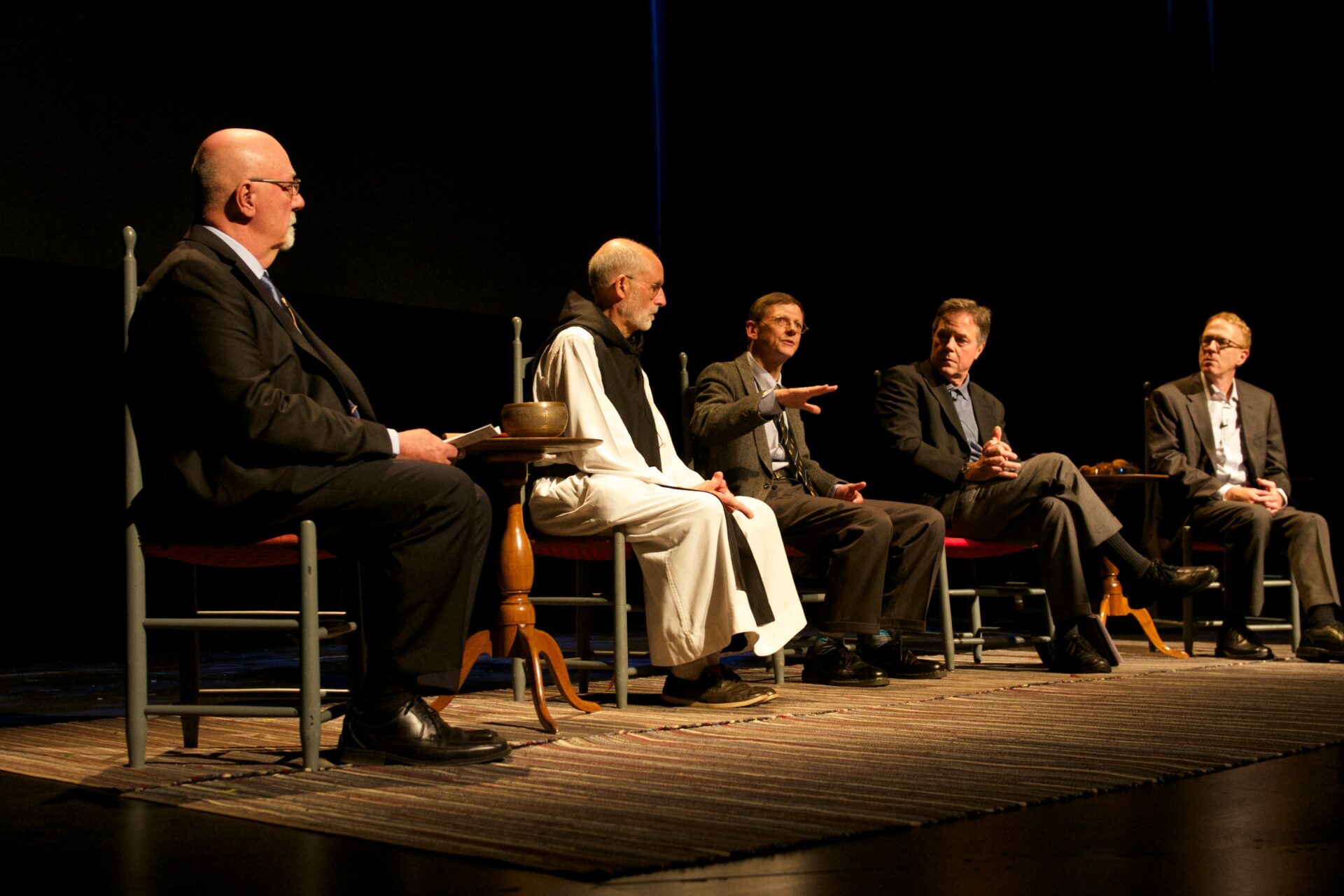by Dana Hatic
Silence is intimate. It is no wonder Thomas Merton retreated to solitude toward the end of his time at the Abbey of Gethsemani. And it is no wonder each session at the Festival of Faiths begins and ends with a shared silence.
Quiet achieved in a crowded space comes with an awareness of the others within that space and how closely we share in the silence of contemplation.
In the Actors Theatre of Louisville Wednesday, that intimate silence came alongside five individuals’ accounts of their own sacred journeys, told in relation to the work and life of Thomas Merton: poet, author, and interfaith innovator.
Each journey addressed a greater part of what is shared in this life: a spiritual path of which the path walker may or may not be aware.
“Our real journey in life is interior,” Merton wrote, and as Dr. Paul Pearson, the director of the Thomas Merton Center at Bellarmine University, said, “Merton introduced contemplation to the world, and the world to the Abbey.”
Pearson offered a brief history of Merton’s journey to and in Gethsemani. Merton’s lifelong path was punctuated by his world-embracing tendencies as well as his prolific writing on all manner of international issues, war and peace, and whether contemplation can find a place in the world of technology.
“Merton’s writings on war and peace still cut today like a knife,” said Dr. Christopher Pramuk, a lifelong musician and a theology professor at Xavier University.
Brother David Steindl-Rast, a Benedictine monk, spoke to the audience in a recorded message and reflected on a meeting he had with Merton. He said he asked Merton about the impact of his encounter with Buddhism, and after a moment of reflection, Merton said he would not be able to understand his Christian faith if it were not in the light of Buddhism.
It is important, Br. Steindl-Rast said, to continue to honor Merton by striving for a deep understanding of other traditions. Then, he said, we can truly understand the depth of our own traditions.
Dr. Pramuk connected Merton to music. He described sitting at a piano when he was a boy and told of finding something other than himself, yet rising from within, in the moments of silence after he would stop playing.
“Thomas Merton gifted language for affirming the experience of wonder, grace, and presence,” Pramuk said, adding that his hidden seeds of contemplation were real, significant, and trustworthy.
Morgan Atkinson, a filmmaker who has produced documentaries on Merton, explained the evolution of his own journey—from his dream of being a filmmaker in Los Angeles to his return to Kentucky, where he read Merton’s “The Seven Storey Mountain” and decided to pay a visit to Gethsemani.
“I went for the weekend and I was changed for life,” Atkinson said. “It was simply being still, and for the first time in a long time, being open to wonder.”
Brother Paul Quenon, OCSO, is a monk and poet who studied under Merton as a novice at the Abbey of Gethsemani. Brother Paul said Merton, the man he knew as Father Louis, was his spiritual director, but treated him as an equal.
“He wanted you to look at the issue yourself,” Quenon said, to think about issues on your own terms.
“Merton gave me a sense of the deep value of solitude,” Quenon said. “It’s a matter of unity and prayer – the basic quest we all have,” he said.
Enmeshed in that quest or journey is contemplation: of other faiths, of others’ journeys, and of stillness found in silence. And perhaps, as Merton learned on his journey, immersing ourselves in the wisdom of another culture may help us find new elements of our own traditions.
